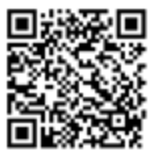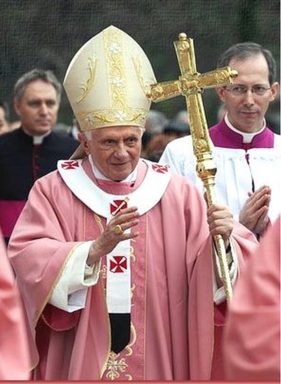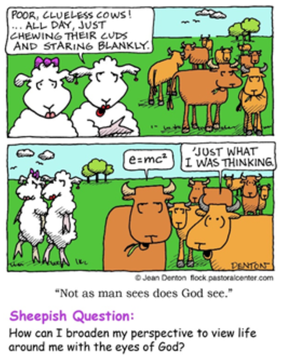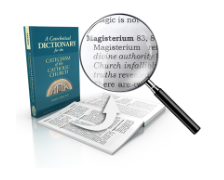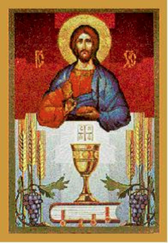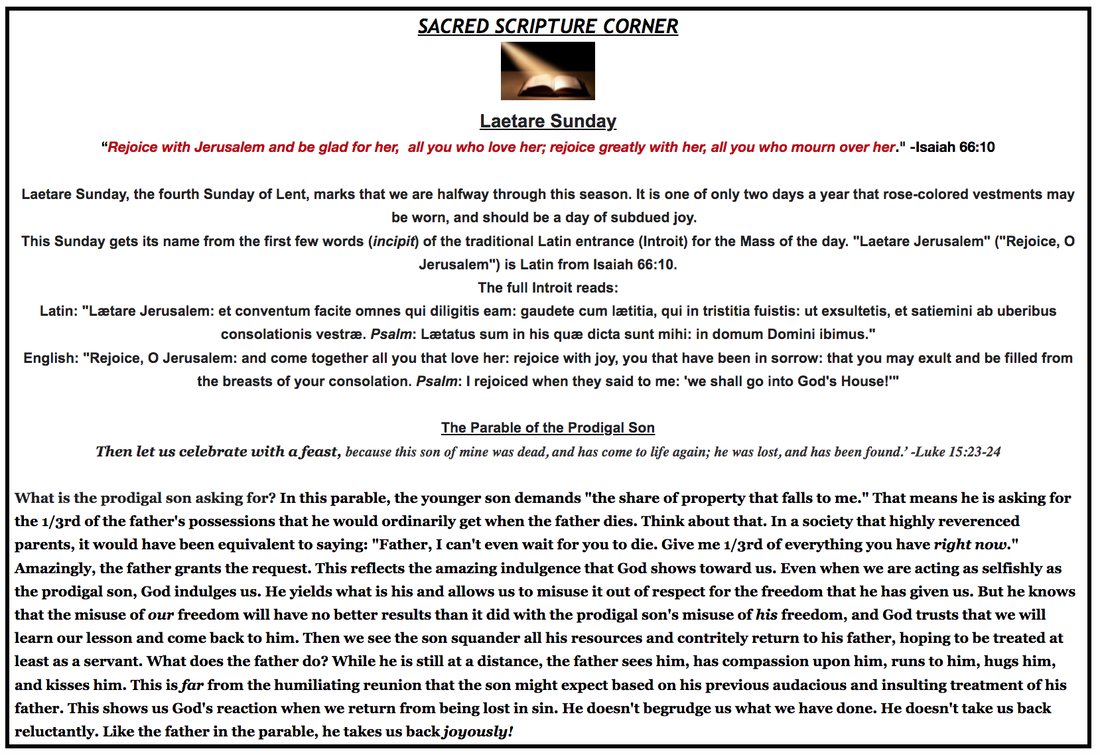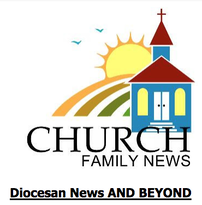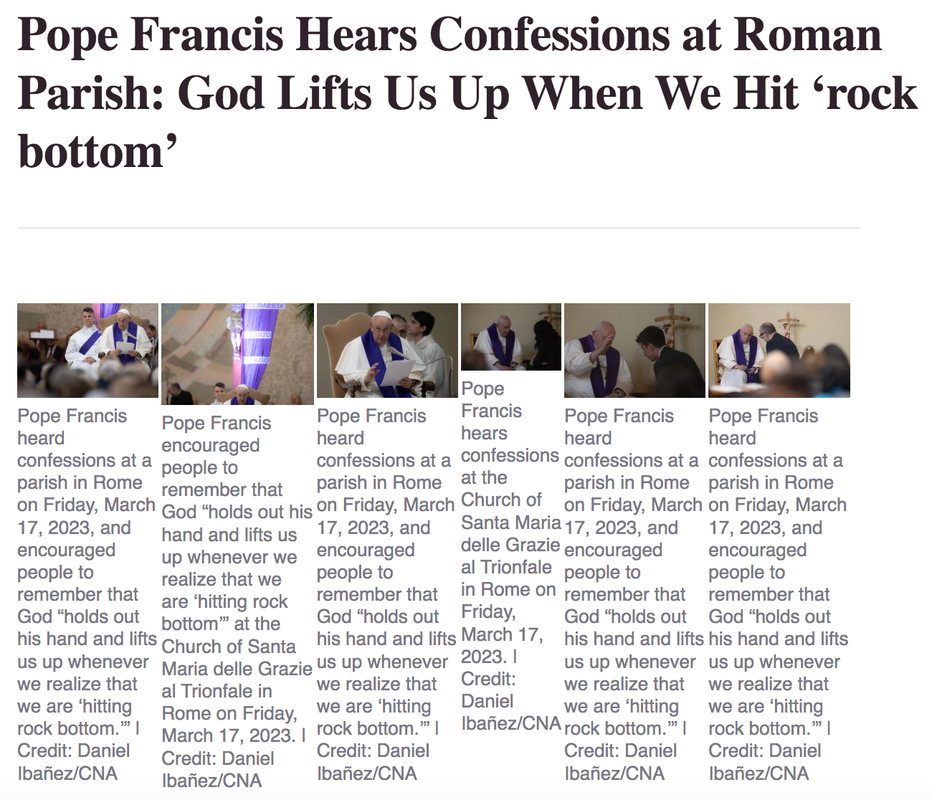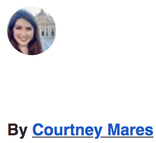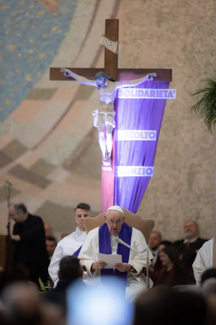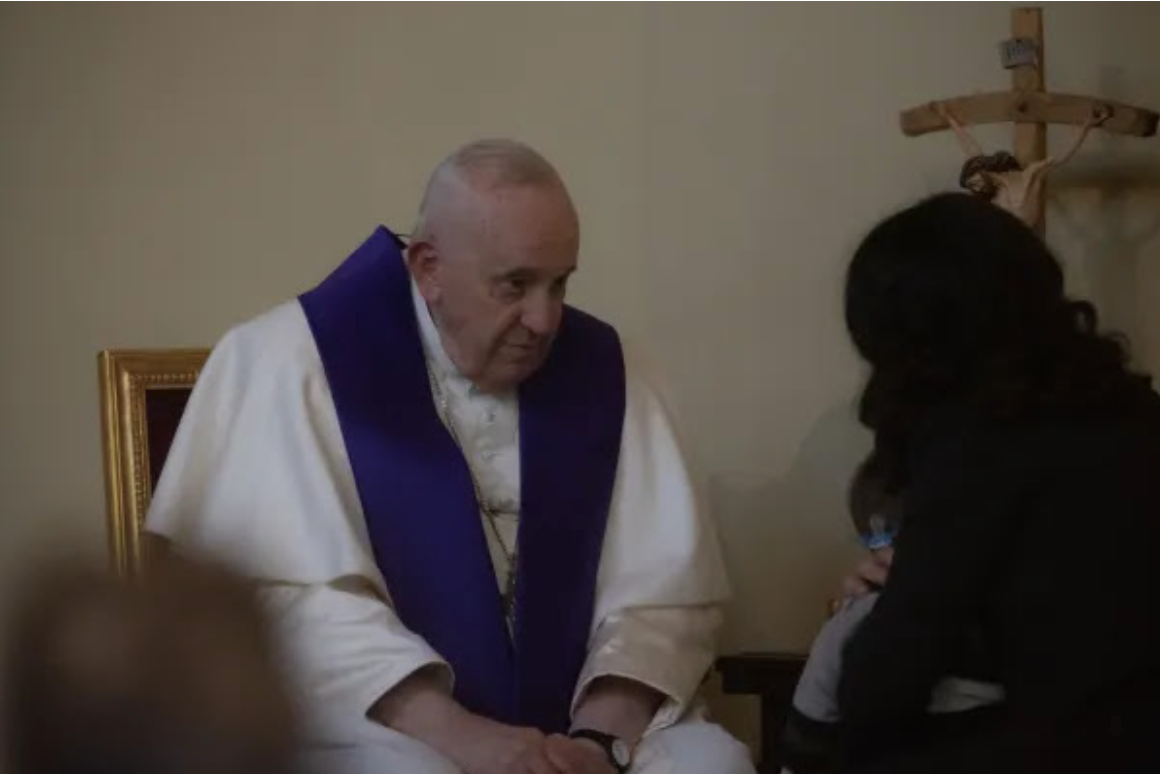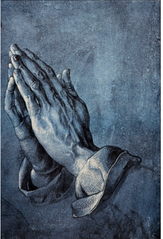In this e-weekly:
- HALLOW-incredible Catholic app for Prayer, learning, and more (Catholic Website Classic of the Week)
- Pope Francis Hearing Confessions at Roman Parish: God Lifts us Up When We Hit "rock bottom" (Diocesan News and BEYOND)
- Living and Loving Others (Helpful Hints for Life)
- HALLOW-incredible Catholic app for Prayer, learning, and more (Catholic Website Classic of the Week)
- Pope Francis Hearing Confessions at Roman Parish: God Lifts us Up When We Hit "rock bottom" (Diocesan News and BEYOND)
- Living and Loving Others (Helpful Hints for Life)
Hallow is a prayer app that offers guided meditation sessions to help us grow in our faith & spiritual lives and find peace in God.
“I grew up Catholic, but fell away from my faith and became fascinated with secular meditation. Something, though, was always missing. It felt like I was being pulled towards something spiritual, something more. So I started asking everyone if there was any sort of intersection between meditation and faith, and what I found changed my life.” -Alex Jones, Founder of Hallow
The Hallow app offers many ways to deepen your prayer life, such as:
-Pray with the reading from the daily Gospel each morning in just 5, 10, or 15 minutes (you choose the length)
-Fall asleep with Bible sleep stories from Fr. Mike Schmitz, Jonathan Roumie, or various Scripture readings by guest readers.
-Meditate with the daily Rosary or many other prayers on your way to work, with your morning coffee, or as you go about your day
-Try praying with music, hearing the Bible in a Year podcast, and much, much more!
Some features include:
-Listen on the way to work, on a plane, in the morning, or at night with downloadable offline sessions and customized lengths anywhere from 1, 5, 10, 15, 30, or 60 minute options!
-Personalize your prayer experience. Choose your guide, length, background music like Gregorian chant, set your favorites, journal, and create your own personal prayer plan.
Try Hallow Premium free for three months!
Go to this link to set up an account on the Hallow website or use the codes below:
https://hallow.com/share/AR6RCL
After you have setup your account, download the app by searching for “Hallow Catholic” in the App Store or Google Play, sign in using the account you just created, and start praying!
Scan here to set up account Scan here for app on Android Scan here for app on iPhone
“I grew up Catholic, but fell away from my faith and became fascinated with secular meditation. Something, though, was always missing. It felt like I was being pulled towards something spiritual, something more. So I started asking everyone if there was any sort of intersection between meditation and faith, and what I found changed my life.” -Alex Jones, Founder of Hallow
The Hallow app offers many ways to deepen your prayer life, such as:
-Pray with the reading from the daily Gospel each morning in just 5, 10, or 15 minutes (you choose the length)
-Fall asleep with Bible sleep stories from Fr. Mike Schmitz, Jonathan Roumie, or various Scripture readings by guest readers.
-Meditate with the daily Rosary or many other prayers on your way to work, with your morning coffee, or as you go about your day
-Try praying with music, hearing the Bible in a Year podcast, and much, much more!
Some features include:
-Listen on the way to work, on a plane, in the morning, or at night with downloadable offline sessions and customized lengths anywhere from 1, 5, 10, 15, 30, or 60 minute options!
-Personalize your prayer experience. Choose your guide, length, background music like Gregorian chant, set your favorites, journal, and create your own personal prayer plan.
Try Hallow Premium free for three months!
Go to this link to set up an account on the Hallow website or use the codes below:
https://hallow.com/share/AR6RCL
After you have setup your account, download the app by searching for “Hallow Catholic” in the App Store or Google Play, sign in using the account you just created, and start praying!
Scan here to set up account Scan here for app on Android Scan here for app on iPhone
Catholic Good News
Receiving the Gospel, Serving God and Neighbor
Laetare Sunday
“Rejoice, O Jerusalem: and come together all you that love her:
rejoice with joy you that have been in sorrow:
that you may exult, and be filled from the breasts of your consolation.
I rejoiced at the things that were said to me: we shall go into the house of the Lord."
-Isaiah 66:10-11; Psalm 121:1
Receiving the Gospel, Serving God and Neighbor
Laetare Sunday
“Rejoice, O Jerusalem: and come together all you that love her:
rejoice with joy you that have been in sorrow:
that you may exult, and be filled from the breasts of your consolation.
I rejoiced at the things that were said to me: we shall go into the house of the Lord."
-Isaiah 66:10-11; Psalm 121:1
Dear friends in Christ Jesus,
Sometimes in life we have long projects or difficult journeys to complete. Some view the season of Lent this way. So the Church helps us and encourages us at such times.
One way the Church does this is by marking the middle of a journey or when it is over half-way completed, and this is the case with Lent. Generally, Lent is a subdued time with focus and work on prayer, fasting, and almsgiving. Music is less during the Masses of Lent, and the organ is recommended not to be used at all. Longer readings of Sacred Scripture and silence tends to play a big part in the Mass. Flowers are not used to adorn the altar. But all this is lessened with Laetare Sunday.
The Thursday before Laetare Sunday (read more below) is actually the middle day of Lent, and it was at one time observed as such, but afterwards the special signs of joy permitted on this day, intended to encourage the faithful in their course through the season of Lent, were transferred to the Sunday following this Thursday. These special signs of joy consist (like those of Gaudete Sunday in Advent [3rd Sunday of Advent]) in the use of flowers on the altar, and of the organ at Mass; rose-colored vestments (NOT pink :o) ) are allowed instead of purple. The contrast between Laetare and the other Sundays of Lent is thus emphasized, and is characteristic of the joys of this life, restrained rejoicing mingled with a certain amount of sadness.
Peace and prayers in Jesus through Mary, loved by Saint Joseph,
Father Robert
P.S. This Sunday is Laetare Sunday, the Fourth Sunday of Lent. The readings can be found at: https://bible.usccb.org/bible/readings/032722-YearC.cfm
Sometimes in life we have long projects or difficult journeys to complete. Some view the season of Lent this way. So the Church helps us and encourages us at such times.
One way the Church does this is by marking the middle of a journey or when it is over half-way completed, and this is the case with Lent. Generally, Lent is a subdued time with focus and work on prayer, fasting, and almsgiving. Music is less during the Masses of Lent, and the organ is recommended not to be used at all. Longer readings of Sacred Scripture and silence tends to play a big part in the Mass. Flowers are not used to adorn the altar. But all this is lessened with Laetare Sunday.
The Thursday before Laetare Sunday (read more below) is actually the middle day of Lent, and it was at one time observed as such, but afterwards the special signs of joy permitted on this day, intended to encourage the faithful in their course through the season of Lent, were transferred to the Sunday following this Thursday. These special signs of joy consist (like those of Gaudete Sunday in Advent [3rd Sunday of Advent]) in the use of flowers on the altar, and of the organ at Mass; rose-colored vestments (NOT pink :o) ) are allowed instead of purple. The contrast between Laetare and the other Sundays of Lent is thus emphasized, and is characteristic of the joys of this life, restrained rejoicing mingled with a certain amount of sadness.
Peace and prayers in Jesus through Mary, loved by Saint Joseph,
Father Robert
P.S. This Sunday is Laetare Sunday, the Fourth Sunday of Lent. The readings can be found at: https://bible.usccb.org/bible/readings/032722-YearC.cfm
Catholic Terms of the Week
Laetare Sunday (from Latin laetare “(you) Rejoice! or (you) Be Glad!”)
- the fourth Sunday of Lent marking that Lent is over half way completed;
Rose-colored vestments may be worn, flowers are permitted and organ played (Laetare – Latin meaning “Rejoice” comes from the opening of the Mass "Laetare Jerusalem…" -- "Rejoice, O Jerusalem…")
Gaudete Sunday (from Latin gaudete “(you all) Rejoice!”)
- the Third Sunday of Advent marking with subdued joy that we are over half way in our waiting for Christmas; Rose-colored vestments may be worn while the rose candle is lit on the Advent wreath (Gaudete comes from the opening of the Mass: Gaudete in Domino simper… –“Rejoice in the Lord always…”)
Laetare Sunday (from Latin laetare “(you) Rejoice! or (you) Be Glad!”)
- the fourth Sunday of Lent marking that Lent is over half way completed;
Rose-colored vestments may be worn, flowers are permitted and organ played (Laetare – Latin meaning “Rejoice” comes from the opening of the Mass "Laetare Jerusalem…" -- "Rejoice, O Jerusalem…")
Gaudete Sunday (from Latin gaudete “(you all) Rejoice!”)
- the Third Sunday of Advent marking with subdued joy that we are over half way in our waiting for Christmas; Rose-colored vestments may be worn while the rose candle is lit on the Advent wreath (Gaudete comes from the opening of the Mass: Gaudete in Domino simper… –“Rejoice in the Lord always…”)
“Helpful Hints of Life”
Living and Loving Others
Never take a "You did", "You said", "You always", and "You never" approach to any discussion with someone you know. Use non-threatening language, and voice tones that bring forth the spirit of cooperation and trust you should have with another especially if you profess to love that person. "I" statements are much better, because they say where you are coming from, and invite the other to respond. (I get worried when you come back late. I am hurt when you do not tell me anything. etc.)
“This is the day which the LORD has made; let us rejoice and be glad in it.
Jesus rose from the dead "on the first day of the week." Because it is the "first day," the day of Christ's Resurrection recalls the first creation. Because it is the "eighth day" following the sabbath, it symbolizes the new creation ushered in by Christ's Resurrection. For Christians it has become the first of all days, the first of all feasts, the Lord's Day (he kuriake hemera, dies dominica) Sunday:
We all gather on the day of the sun, for it is the first day [after the Jewish sabbath, but also the first day] when God, separating matter from darkness, made the world; and on this same day Jesus Christ our Savior rose from the dead.” Catechism of the Catholic Church #2174
Living and Loving Others
Never take a "You did", "You said", "You always", and "You never" approach to any discussion with someone you know. Use non-threatening language, and voice tones that bring forth the spirit of cooperation and trust you should have with another especially if you profess to love that person. "I" statements are much better, because they say where you are coming from, and invite the other to respond. (I get worried when you come back late. I am hurt when you do not tell me anything. etc.)
“This is the day which the LORD has made; let us rejoice and be glad in it.
Jesus rose from the dead "on the first day of the week." Because it is the "first day," the day of Christ's Resurrection recalls the first creation. Because it is the "eighth day" following the sabbath, it symbolizes the new creation ushered in by Christ's Resurrection. For Christians it has become the first of all days, the first of all feasts, the Lord's Day (he kuriake hemera, dies dominica) Sunday:
We all gather on the day of the sun, for it is the first day [after the Jewish sabbath, but also the first day] when God, separating matter from darkness, made the world; and on this same day Jesus Christ our Savior rose from the dead.” Catechism of the Catholic Church #2174
Here is a website for the modern Roman Catholic. First, many free things; second, great news and commentary; third, great Catholic resources for most any topic; and finally it was started by as average a Catholic Joe as there ever was. Site describes itself as having:
· Swift and Effortless Online Ordering
· Free Rapid Delivery to Your Doorstep
· The Finest Catholic CDs, Tapes, and Novels
· Parish-Friendly Catholic Resources
· Superb & Innovative News and Commentary
Following is a reminder on where to find a televised Mass:
Daily Mass with Word on Fire from Bishop Robert Barron’s Chapel
Daily Mass from Saint John’s Abbey, Collegeville, MN
Sunday Masses for the homebound telecast from the Archdiocese of St. Louis (includes listings for both antenna and cable television, radio and online)
Shrine of Our Lady of the Snows, Belleville - English and Spanish Masses available beginning March 22, 2020
EWTN: https://www.ewtn.com/tv/channel-finder (English)
https://www.ewtn.com/espanol/magtv.asp (Spanish)
Catholic TV: https://www.catholictv.org
If someone would like to begin the practice of daily prayer, there is an app that provides a new prayer session every day produced by Jesuit Ministries and is based on Ignatian Spirituality. https://pray-as-you-go.org/
Other resources for daily prayer:
https://us.magnificat.net/free
https://latina/magnificat.net/gratis
https://ebreviary.com/ebreviary/ebreviary.nsf/prayersforeveryone.htm
“Give Us This Day” is providing free access to their digital edition and their mobile app. For more information go to https://offers.giveusthisday.org/free-resources
Family and Youth Resources
Loyola Press is offering free resources to families on faith, family and fun. They are also providing a resource to help teachers, catechists and parents explain COVID-19 to their children.
Pope Francis heard confessions at a parish in Rome on Friday and encouraged people to remember that God “holds out his hand and lifts us up whenever we realize that we are ‘hitting rock bottom.’”
In the presence of Eucharistic Adoration, the pope presided over a Lenten penitential service on March 17 to open “24 Hours for the Lord,” an initiative in which certain Catholic churches around the world will remain open 24 consecutive hours with round-the-clock confession and adoration.
“Brothers, sisters, let us remember this: The Lord comes to us when we step back from our presumptuous ego. … He can bridge the distance whenever, with honesty and sincerity, we bring our weaknesses before him,” Pope Francis said.
“He holds out his hand and lifts us up whenever we realize we are ‘hitting rock bottom’ and we turn back to him with a sincere heart. That is how God is. He is waiting for us, deep down, for in Jesus he chose to ‘descend to the depths.’”
In the presence of Eucharistic Adoration, the pope presided over a Lenten penitential service on March 17 to open “24 Hours for the Lord,” an initiative in which certain Catholic churches around the world will remain open 24 consecutive hours with round-the-clock confession and adoration.
“Brothers, sisters, let us remember this: The Lord comes to us when we step back from our presumptuous ego. … He can bridge the distance whenever, with honesty and sincerity, we bring our weaknesses before him,” Pope Francis said.
“He holds out his hand and lifts us up whenever we realize we are ‘hitting rock bottom’ and we turn back to him with a sincere heart. That is how God is. He is waiting for us, deep down, for in Jesus he chose to ‘descend to the depths.’”
Pope Francis encouraged people to remember that God “holds out his hand and lifts us up whenever we realize that we are ‘hitting rock bottom’” at the Church of Santa Maria delle Grazie al Trionfale in Rome on Friday, March 17, 2023. Credit: Daniel Ibañez/CNAThe pope underlined that God waits for us, especially in the sacrament of penance, where he said the Lord touches our wounds, heals our hearts, and leaves us with inner peace.
Pope Francis visited the Church of Santa Maria delle Grazie al Trionfale, a parish located about one mile from the pope’s residence inside Vatican City.
Upon his arrival at the parish, the pope kissed a small Marian icon from his wheelchair and gave a bouquet of flowers to Our Lady. He offered greetings and shook hands with many people inside the parish from his wheelchair.
The pope offered a homily on God’s mercy before leading the parish in the Confiteor prayer.
Many people made confessions to priests — and some to the pope himself — during the Holy Hour at the Roman parish just outside the walls of Vatican City.
Pope Francis visited the Church of Santa Maria delle Grazie al Trionfale, a parish located about one mile from the pope’s residence inside Vatican City.
Upon his arrival at the parish, the pope kissed a small Marian icon from his wheelchair and gave a bouquet of flowers to Our Lady. He offered greetings and shook hands with many people inside the parish from his wheelchair.
The pope offered a homily on God’s mercy before leading the parish in the Confiteor prayer.
Many people made confessions to priests — and some to the pope himself — during the Holy Hour at the Roman parish just outside the walls of Vatican City.
Pope Francis hears confessions at the Church of Santa Maria delle Grazie al Trionfale in Rome on Friday, March 17, 2023. Credit: Daniel Ibañez/CNAPope Francis began the “24 Hours for the Lord” initiative in 2014, one year before he announced the Extraordinary Jubilee of Mercy.
The Vatican Dicastery for Evangelization has asked dioceses around the world to once again open churches for 24 hours from Friday, March 17, to Saturday, March 18, to offer the opportunity to make confessions and pray in the presence of Eucharistic Adoration.
In his homily, Pope Francis asked the parishioners to repeat together the prayer of a tax collector in chapter 18 of the Gospel of Luke: “God, be merciful to me, a sinner.”
The pope prayed: “God, be merciful to me, a sinner! When I forget you or I neglect you, when I prefer my words and those of the world to your own word, when I presume to be righteous and look down on others, when I gossip about others … God, be merciful to me, a sinner.”
“When I care nothing for those all around me, when I’m indifferent to the poor and the suffering, the weak and the outcast, God, be merciful to me, a sinner! For my sins against life, for my bad example that mars the lovely face of Mother Church, for my sins against creation, God, be merciful to me, a sinner.”
“For my falsehoods, my duplicity, my lack of honesty and integrity, God, be merciful to me, a sinner. For my hidden sins, for the ways in which I have unconsciously wronged others, and for the good I could have done and yet failed to do, God, be merciful to me, a sinner.”
The Year for Consecrated Life, which began Nov. 30, 2014, concluded Feb. 2 on the Feast of the Presentation of Jesus.
Sr. Mary Christa, who also runs U.S. bishops' visitor's office in Rome with several other Sisters of Mercy, called the habit of a religious sister an important part of being a witness.
“The religious habit should say a number of things, both to the sister herself, and to those who see her,” she said, recounting how she is often approached by strangers asking for prayers, who automatically trust her on account of her appearance.
“The habit is a visible sign of the love of God,” she said. “But it’s also, I have found, a great responsibility and a reminder to me: the responsibility to be what I show that I am.”
“It’s a sign of the love of God and that this life is not all there is: that God exists and loves them,” she said.
One of the distinguishing aspects of their habit – a dark veil and a simple, pale blue frock in the summer, and a darker color for the winter – is a simple black cross, overlaid by a smaller white cross, which is worn around the neck.
“The black of the cross represents the misery of mankind that we find in the world, and the white represents God’s mercy, which we are called to bring into the world as Sisters of Mercy,” explained Sr. Mary Michaela, who works at the visitor's office.
“There is a long tradition in religious life of wearing a habit as a visible sign that we are consecrated to God and to the service of the Church in a special way,” she said. “It’s also part of poverty,” she added. “Our habit is simple, so we don’t buy a big wardrobe.”
Living in Rome, Sr. Mary Michaela noted how she too is approached by people asking for prayers on account of her habit.
“When they see the habit, they realize that there is something particular about our life,” she said.
“They recognize that we represent, in some way, God’s presence. We remind people of God’s presence here in the world.”
First established in Ireland in 1831 by venerable Catherine McAuley, the Sisters of Mercy centered their work on education, catechesis, healthcare. Spreading to the United States, the order was re-founded in 1973 in Alma, Michigan, where its motherhouse is currently located.
In addition to the three vows taken by all religious sisters, the Sisters of Mercy take a fourth vow of service to the poor, sick, and ignorant.
In Rome, the Sisters of Mercy offer orientation to U.S. Pilgrims – obtaining tickets for papal events, answering their questions about the city, and helping them with the pilgrimage aspect of their visit.
“This is one of the apostolic works that we do as a community,” said Sr. Regina Marie, speaking on her work at the visitor's office.
Pilgrims “can come here and learn about the faith,” she said. “We will often have a priest that will come at a certain time for a half hour and give catechesis for anyone who wants to. We have catechetical materials out for the pilgrims, (or) even just a place for them to sit down for a few minutes.”
“Our charism is the mercy of God,” she said. “Our apostolates are usually focused around the corporal and spiritual works of mercy, which can manifest themselves in many ways.”
Sr. Anna Marie, another sister at the office, adds that “the consecrated life is a sign of his presence on earth.”
“We live our vows so that when people see us, they think of God, and they think of Jesus, and they think of the Church. That’s a tremendous privilege.”
On how people will often ask her about her life as a religious, Sr. Anna Marie said she is excited to answer their questions.
“It’s a gift not only for me, but a gift for the whole Church and for the world,” she said.
“Christ and his Church thus together make up the "whole Christ" (Christus totus). The Church is one with Christ.
The saints are acutely aware of this unity:
Let us rejoice then and give thanks that we have become not only Christians, but Christ himself. Do you understand and grasp, brethren, God's grace toward us? Marvel and rejoice: we have become Christ. For if he is the head, we are the members; he and we together are the whole man. . . . The fullness of Christ then is the head and the members. But what does "head and members" mean? Christ and the Church.
Our redeemer has shown himself to be one person with the holy Church whom he has taken to himself.
Head and members form as it were one and the same mystical person.
A reply of St. Joan of Arc to her judges sums up the faith of the holy doctors and the good sense of the believer: "About Jesus Christ and the Church, I simply know they're just one thing, and we shouldn't complicate the matter.”
Catechism of the Catholic Church #795
The saints are acutely aware of this unity:
Let us rejoice then and give thanks that we have become not only Christians, but Christ himself. Do you understand and grasp, brethren, God's grace toward us? Marvel and rejoice: we have become Christ. For if he is the head, we are the members; he and we together are the whole man. . . . The fullness of Christ then is the head and the members. But what does "head and members" mean? Christ and the Church.
Our redeemer has shown himself to be one person with the holy Church whom he has taken to himself.
Head and members form as it were one and the same mystical person.
A reply of St. Joan of Arc to her judges sums up the faith of the holy doctors and the good sense of the believer: "About Jesus Christ and the Church, I simply know they're just one thing, and we shouldn't complicate the matter.”
Catechism of the Catholic Church #795
A bit of humor…
-My job is secure. No one else wants it.
-Don't you hate it when someone answers their own questions? I do.
-I named my dog 6 miles so I can tell people that I walk 6 miles every single day.
- “There are three kinds of people: those who can count and those who can’t.”
- “At every party there are two kinds of people: those who want to go home and those who don’t. The trouble is, they are usually married to each other.”
- “This is my step ladder. I never knew my real ladder.
- The pollen count, now that's a difficult job.
Easy Math
Question on second-grade math quiz: "Tony drank 1/6 of a glass of juice. Emily drank 1/4 of a glass of juice. Emily drank more. Explain." My grandson’s answer: "She was more thirsty."
Perfect AttendanceOur local newspaper lists recipients of school awards. Beneath one photo, the caption read "This year’s Perfect Attendance Awards go to Ann Stein and Bradley Jenkins. Not present for photo: Bradley Jenkins."
Flight TrainingAn amateur pilot wannabe, I knew I’d finally made progress with my flight training the day my instructor turned to me and said, “You know, you’re not as much fun since you stopped screaming.”
A first grade teacher collected well known proverbs. She gave each child in her class the first half of the proverb and asked them to come up with the remainder of the proverb:
-My job is secure. No one else wants it.
-Don't you hate it when someone answers their own questions? I do.
-I named my dog 6 miles so I can tell people that I walk 6 miles every single day.
- “There are three kinds of people: those who can count and those who can’t.”
- “At every party there are two kinds of people: those who want to go home and those who don’t. The trouble is, they are usually married to each other.”
- “This is my step ladder. I never knew my real ladder.
- The pollen count, now that's a difficult job.
Easy Math
Question on second-grade math quiz: "Tony drank 1/6 of a glass of juice. Emily drank 1/4 of a glass of juice. Emily drank more. Explain." My grandson’s answer: "She was more thirsty."
Perfect AttendanceOur local newspaper lists recipients of school awards. Beneath one photo, the caption read "This year’s Perfect Attendance Awards go to Ann Stein and Bradley Jenkins. Not present for photo: Bradley Jenkins."
Flight TrainingAn amateur pilot wannabe, I knew I’d finally made progress with my flight training the day my instructor turned to me and said, “You know, you’re not as much fun since you stopped screaming.”
A first grade teacher collected well known proverbs. She gave each child in her class the first half of the proverb and asked them to come up with the remainder of the proverb:
- Strike while the...bug is close.
- It's always darkest before...daylight savings time.
- Never underestimate the power of......termites.
- Don't bite the hand that.....looks dirty.
- A miss is as good as a ......Mr.
- If you lie down with dogs.....you stink in the morning
- An idle mind is....the best way to relax
- Where there's smoke there's.....pollution
- Happy the bride who.....gets all the presents
- A penny saved is.....not much
- Laugh and the whole world laughs with you, cry and.....you have to blow your nose
- Children should be seen and not...spanked or scolded
- When the blind lead the blind.....get out of the way
Prayer for a Sick Child
R. O Lord, hear my prayer.
V. And let my cry come unto Thee.
Lord Jesus Christ, Good Shepherd of the sheep, you gather the lambs in your arms and carry them in your bosom: We commend to your loving care this child. Relieve his/her pain, guard him/her from all danger, restore to him/her your gifts of gladness and strength, and raise this child up to a life of service to you.
Hear us, we pray, for you dear Name's sake. Amen.
R. O Lord, hear my prayer.
V. And let my cry come unto Thee.
Lord Jesus Christ, Good Shepherd of the sheep, you gather the lambs in your arms and carry them in your bosom: We commend to your loving care this child. Relieve his/her pain, guard him/her from all danger, restore to him/her your gifts of gladness and strength, and raise this child up to a life of service to you.
Hear us, we pray, for you dear Name's sake. Amen.
“To the Lord's Sermon on the Mount it is fitting to add the moral catechesis of the apostolic teachings, such as Romans 12-15, 1 Corinthians 12-13, Colossians 3-4, Ephesians 4-5, etc. This doctrine hands on the Lord's teaching with the authority of the apostles, particularly in the presentation of the virtues that flow from faith in Christ and are animated by charity, the principal gift of the Holy Spirit. "Let charity be genuine. . . . Love one another with brotherly affection. . . . Rejoice in your hope, be patient in tribulation, be constant in prayer. Contribute to the needs of the saints, practice hospitality." This catechesis also teaches us to deal with cases of conscience in the light of our relationship to Christ and to the Church..”
Catechism of the Catholic Church #1971
Catechism of the Catholic Church #1971
+JMJ+
SUNDAY MASS READINGS AND QUESTIONS
for Self-Reflection, Couples or Family Discussion
Laetare Sunday- Sunday, March 19th, 2023
The First Reading - 1 Sm 16:1b, 6-7, 10-13a
The LORD said to Samuel: “Fill your horn with oil, and be on your way. I am sending you to Jesse of Bethlehem, for I have chosen my king from among his sons.” As Jesse and his sons came to the sacrifice, Samuel looked at Eliab and thought, “Surely the LORD’s anointed is here before him.” But the LORD said to Samuel: “Do not judge from his appearance or from his lofty stature, because I have rejected him. Not as man sees does God see, because man sees the appearance but the LORD looks into the heart.” In the same way Jesse presented seven sons before Samuel, but Samuel said to Jesse, “The LORD has not chosen any one of these.” Then Samuel asked Jesse, “Are these all the sons you have?” Jesse replied, “There is still the youngest, who is tending the sheep.” Samuel said to Jesse, “Send for him; we will not begin the sacrificial banquet until he arrives here.” Jesse sent and had the young man brought to them. He was ruddy, a youth handsome to behold and making a splendid appearance. The LORD said, “There—anoint him, for this is the one!” Then Samuel, with the horn of oil in hand, anointed David in the presence of his brothers; and from that day on, the spirit of the LORD rushed upon David.
Reflection
The anointing of David is typologically related to the anointing of the Blind Man in the Gospel. Like David, the Blind Man enters into communion with God through this anointing. As we will see, he is “recreated” by Jesus through this miracle. But the Spirit is connected to creation. The Holy Spirit is the “Creator Spirit,” who moved over the waters of the abyss at the beginning and caused creation to come into being. When David receives the Spirit of the LORD at the hands of Samuel, he is in a sense becoming a new creation of God. As St. Paul will later say, “If anyone is in Christ, he is a new creation!” (2 Cor 5:17).
Adults – What do you need Jesus to “recreate” in your life?
Teens -As a new creation in the Lord, how should we live differently from the rest of the world?
Kids – Why do you think God wants us to live in the ways that He teaches?
Responsorial- Psalm Ps 23: 1-3a, 3b-4, 5, 6.
R. The Lord is my shepherd; there is nothing I shall want.
The LORD is my shepherd; I shall not want.
beside restful waters he leads me;
he refreshes my soul.
R. The Lord is my shepherd; there is nothing I shall want.
He guides me in right paths
for his name’s sake.
Even though I walk in the dark valley
I fear no evil; for you are at my side
With your rod and your staff
that give me courage.
R. The Lord is my shepherd; there is nothing I shall want.
You spread the table before me
in the sight of my foes;
you anoint my head with oil;
my cup overflows.
R. The Lord is my shepherd; there is nothing I shall want.
Only goodness and kindness follow me
all the days of my life;
and I shall dwell in the house of the LORD
for years to come.
R. The Lord is my shepherd; there is nothing I shall want.
Reflection
The Responsorial Psalm is the well-known and much beloved Psalm 23. “The LORD is my shepherd, there is nothing I shall want.” Besides the LORD, the only other individual identified as the Shepherd of Israel in the OT is the Davidic King. Like their forefather, the heirs of David were Shepherds of Israel. Ezekiel prophesied a day when both the LORD God himself (Ezek 34:15) and David (Ezek 34:23) would be Shepherd of Israel, yet mysteriously, there would only be One Shepherd (Ezek 34:23). Do you rely on the Lord as a sheep relies on its shepherd?
The Second Reading- Eph 5:8-14
Brothers and sisters: You were once darkness, but now you are light in the Lord. Live as children of light, for light produces every kind of goodness and righteousness and truth. Try to learn what is pleasing to the Lord. Take no part in the fruitless works of darkness; rather expose them, for it is shameful even to mention the things done by them in secret; but everything exposed by the light becomes visible, for everything that becomes visible is light. Therefore, it says: “Awake, O sleeper, and arise from the dead,
and Christ will give you light.”
Reflection - In today’s Gospel, Jesus grants light to a man born into darkness. Yet the natural darkness of the Blind Man is a type of the condition into which all of us are born, namely, the spiritual darkness of original sin. In Baptism we arise from spiritual death (“Awake, O Sleeper, and arise from the dead”) and become enlightened with the illuminating gift of the Holy Spirit. -Where could you use the light of Christ in your life?
The Holy Gospel according to Jn 9:1-41
As Jesus passed by he saw a man blind from birth. His disciples asked him, “Rabbi, who sinned, this man or his parents, that he was born blind?” Jesus answered, “Neither he nor his parents sinned; it is so that the works of God might be made visible through him. We have to do the works of the one who sent me while it is day. Night is coming when no one can work. While I am in the world, I am the light of the world.” When he had said this, he spat on the ground and made clay with the saliva, and smeared the clay on his eyes, and said to him, “Go wash in the Pool of Siloam” —which means Sent—. So he went and washed, and came back able to see. His neighbors and those who had seen him earlier as a beggar said, “Isn’t this the one who used to sit and beg?” Some said, “It is, “but others said, “No, he just looks like him.” He said, “I am.” So they said to him, “How were your eyes opened?” He replied, “The man called Jesus made clay and anointed my eyes and told me, ‘Go to Siloam and wash.’ So I went there and washed and was able to see.” And they said to him, “Where is he?” He said, “I don’t know.” They brought the one who was once blind to the Pharisees. Now Jesus had made clay and opened his eyes on a sabbath. So then the Pharisees also asked him how he was able to see. He said to them, “He put clay on my eyes, and I washed, and now I can see.” So some of the Pharisees said, “This man is not from God, because he does not keep the sabbath.” But others said, “How can a sinful man do such signs?” And there was a division among them. So they said to the blind man again, “What do you have to say about him, since he opened your eyes?” He said, “He is a prophet.” Now the Jews did not believe that he had been blind and gained his sight until they summoned the parents of the one who had gained his sight. They asked them, “Is this your son, who you say was born blind? How does he now see?” His parents answered and said, “We know that this is our son and that he was born blind. We do not know how he sees now, nor do we know who opened his eyes. Ask him, he is of age; he can speak for himself.” His parents said this because they were afraid of the Jews, for the Jews had already agreed that if anyone acknowledged him as the Christ, he would be expelled from the synagogue. For this reason his parents said, “He is of age; question him.” So a second time they called the man who had been blind and said to him, “Give God the praise! We know that this man is a sinner.” He replied, “If he is a sinner, I do not know. One thing I do know is that I was blind and now I see.” So they said to him, “What did he do to you? How did he open your eyes?” He answered them, “I told you already and you did not listen. Why do you want to hear it again? Do you want to become his disciples, too?” They ridiculed him and said, “You are that man’s disciple; we are disciples of Moses! We know that God spoke to Moses, but we do not know where this one is from.” The man answered and said to them, “This is what is so amazing, that you do not know where he is from, yet he opened my eyes. We know that God does not listen to sinners, but if one is devout and does his will, he listens to him. It is unheard of that anyone ever opened the eyes of a person born blind. If this man were not from God, he would not be able to do anything.” They answered and said to him, “You were born totally in sin, and are you trying to teach us?” Then they threw him out. When Jesus heard that they had thrown him out, he found him and said, "Do you believe in the Son of Man?” He answered and said, “Who is he, sir, that I may believe in him?” Jesus said to him, “You have seen him, the one speaking with you is he.” He said, “I do believe, Lord,” and he worshiped him. Then Jesus said, “I came into this world for judgment, so that those who do not see might see, and those who do see might become blind.” Some of the Pharisees who were with him heard this and said to him, “Surely we are not also blind, are we?” Jesus said to them, “If you were blind, you would have no sin; but now you are saying, ‘We see,’ so your sin remains.
Reflection - The Man Born Blind is a type of Baptism. All of us are born into spiritual blindness, original sin. The disciples’ question “Who sinned, this man or his parents?” reflects a Pharisaic belief that birth defects were the result of parental sin, or else the child himself sinned in the womb. Jesus says “Neither have sinned.” Instead, this is an opportunity for God’s glory to be revealed. “I am the light of the world,” Jesus asserts. To fully appreciate this statement, and indeed the entire account of this healing, we must notice that it occurs in a long section of John (chapters 7-9) which takes place during the Jewish Feast of Tabernacles. This resplendent festival was marked by two themes: light (Zech 14:7) and water (Zech 14:8). The Temple was lit with gigantic menorahs all through the night for a week, and on the last day of the festival water was taken from the Pool of Siloam and poured out on the altar of the Temple as a prayer for rain, and as an actualization of various OT prophecies of a river flowing from the Temple in the last times (see Ezek 47; Joel 3:18; Zech 14:8). John 9 ends this long section of John, and draws together the themes of water and light, as Jesus uses water to bring light to this man. Obviously, water and light are connected to creation, too, because first the waters covered the deep, and then God said, “Let there be light!”
Adults – In this time of trial for our world, where do you see God’s light?
Teens – How is the love and mercy of God bringing you comfort?
Kids – Where do you experience the love of Jesus?
SUNDAY MASS READINGS AND QUESTIONS
for Self-Reflection, Couples or Family Discussion
Laetare Sunday- Sunday, March 19th, 2023
The First Reading - 1 Sm 16:1b, 6-7, 10-13a
The LORD said to Samuel: “Fill your horn with oil, and be on your way. I am sending you to Jesse of Bethlehem, for I have chosen my king from among his sons.” As Jesse and his sons came to the sacrifice, Samuel looked at Eliab and thought, “Surely the LORD’s anointed is here before him.” But the LORD said to Samuel: “Do not judge from his appearance or from his lofty stature, because I have rejected him. Not as man sees does God see, because man sees the appearance but the LORD looks into the heart.” In the same way Jesse presented seven sons before Samuel, but Samuel said to Jesse, “The LORD has not chosen any one of these.” Then Samuel asked Jesse, “Are these all the sons you have?” Jesse replied, “There is still the youngest, who is tending the sheep.” Samuel said to Jesse, “Send for him; we will not begin the sacrificial banquet until he arrives here.” Jesse sent and had the young man brought to them. He was ruddy, a youth handsome to behold and making a splendid appearance. The LORD said, “There—anoint him, for this is the one!” Then Samuel, with the horn of oil in hand, anointed David in the presence of his brothers; and from that day on, the spirit of the LORD rushed upon David.
Reflection
The anointing of David is typologically related to the anointing of the Blind Man in the Gospel. Like David, the Blind Man enters into communion with God through this anointing. As we will see, he is “recreated” by Jesus through this miracle. But the Spirit is connected to creation. The Holy Spirit is the “Creator Spirit,” who moved over the waters of the abyss at the beginning and caused creation to come into being. When David receives the Spirit of the LORD at the hands of Samuel, he is in a sense becoming a new creation of God. As St. Paul will later say, “If anyone is in Christ, he is a new creation!” (2 Cor 5:17).
Adults – What do you need Jesus to “recreate” in your life?
Teens -As a new creation in the Lord, how should we live differently from the rest of the world?
Kids – Why do you think God wants us to live in the ways that He teaches?
Responsorial- Psalm Ps 23: 1-3a, 3b-4, 5, 6.
R. The Lord is my shepherd; there is nothing I shall want.
The LORD is my shepherd; I shall not want.
beside restful waters he leads me;
he refreshes my soul.
R. The Lord is my shepherd; there is nothing I shall want.
He guides me in right paths
for his name’s sake.
Even though I walk in the dark valley
I fear no evil; for you are at my side
With your rod and your staff
that give me courage.
R. The Lord is my shepherd; there is nothing I shall want.
You spread the table before me
in the sight of my foes;
you anoint my head with oil;
my cup overflows.
R. The Lord is my shepherd; there is nothing I shall want.
Only goodness and kindness follow me
all the days of my life;
and I shall dwell in the house of the LORD
for years to come.
R. The Lord is my shepherd; there is nothing I shall want.
Reflection
The Responsorial Psalm is the well-known and much beloved Psalm 23. “The LORD is my shepherd, there is nothing I shall want.” Besides the LORD, the only other individual identified as the Shepherd of Israel in the OT is the Davidic King. Like their forefather, the heirs of David were Shepherds of Israel. Ezekiel prophesied a day when both the LORD God himself (Ezek 34:15) and David (Ezek 34:23) would be Shepherd of Israel, yet mysteriously, there would only be One Shepherd (Ezek 34:23). Do you rely on the Lord as a sheep relies on its shepherd?
The Second Reading- Eph 5:8-14
Brothers and sisters: You were once darkness, but now you are light in the Lord. Live as children of light, for light produces every kind of goodness and righteousness and truth. Try to learn what is pleasing to the Lord. Take no part in the fruitless works of darkness; rather expose them, for it is shameful even to mention the things done by them in secret; but everything exposed by the light becomes visible, for everything that becomes visible is light. Therefore, it says: “Awake, O sleeper, and arise from the dead,
and Christ will give you light.”
Reflection - In today’s Gospel, Jesus grants light to a man born into darkness. Yet the natural darkness of the Blind Man is a type of the condition into which all of us are born, namely, the spiritual darkness of original sin. In Baptism we arise from spiritual death (“Awake, O Sleeper, and arise from the dead”) and become enlightened with the illuminating gift of the Holy Spirit. -Where could you use the light of Christ in your life?
The Holy Gospel according to Jn 9:1-41
As Jesus passed by he saw a man blind from birth. His disciples asked him, “Rabbi, who sinned, this man or his parents, that he was born blind?” Jesus answered, “Neither he nor his parents sinned; it is so that the works of God might be made visible through him. We have to do the works of the one who sent me while it is day. Night is coming when no one can work. While I am in the world, I am the light of the world.” When he had said this, he spat on the ground and made clay with the saliva, and smeared the clay on his eyes, and said to him, “Go wash in the Pool of Siloam” —which means Sent—. So he went and washed, and came back able to see. His neighbors and those who had seen him earlier as a beggar said, “Isn’t this the one who used to sit and beg?” Some said, “It is, “but others said, “No, he just looks like him.” He said, “I am.” So they said to him, “How were your eyes opened?” He replied, “The man called Jesus made clay and anointed my eyes and told me, ‘Go to Siloam and wash.’ So I went there and washed and was able to see.” And they said to him, “Where is he?” He said, “I don’t know.” They brought the one who was once blind to the Pharisees. Now Jesus had made clay and opened his eyes on a sabbath. So then the Pharisees also asked him how he was able to see. He said to them, “He put clay on my eyes, and I washed, and now I can see.” So some of the Pharisees said, “This man is not from God, because he does not keep the sabbath.” But others said, “How can a sinful man do such signs?” And there was a division among them. So they said to the blind man again, “What do you have to say about him, since he opened your eyes?” He said, “He is a prophet.” Now the Jews did not believe that he had been blind and gained his sight until they summoned the parents of the one who had gained his sight. They asked them, “Is this your son, who you say was born blind? How does he now see?” His parents answered and said, “We know that this is our son and that he was born blind. We do not know how he sees now, nor do we know who opened his eyes. Ask him, he is of age; he can speak for himself.” His parents said this because they were afraid of the Jews, for the Jews had already agreed that if anyone acknowledged him as the Christ, he would be expelled from the synagogue. For this reason his parents said, “He is of age; question him.” So a second time they called the man who had been blind and said to him, “Give God the praise! We know that this man is a sinner.” He replied, “If he is a sinner, I do not know. One thing I do know is that I was blind and now I see.” So they said to him, “What did he do to you? How did he open your eyes?” He answered them, “I told you already and you did not listen. Why do you want to hear it again? Do you want to become his disciples, too?” They ridiculed him and said, “You are that man’s disciple; we are disciples of Moses! We know that God spoke to Moses, but we do not know where this one is from.” The man answered and said to them, “This is what is so amazing, that you do not know where he is from, yet he opened my eyes. We know that God does not listen to sinners, but if one is devout and does his will, he listens to him. It is unheard of that anyone ever opened the eyes of a person born blind. If this man were not from God, he would not be able to do anything.” They answered and said to him, “You were born totally in sin, and are you trying to teach us?” Then they threw him out. When Jesus heard that they had thrown him out, he found him and said, "Do you believe in the Son of Man?” He answered and said, “Who is he, sir, that I may believe in him?” Jesus said to him, “You have seen him, the one speaking with you is he.” He said, “I do believe, Lord,” and he worshiped him. Then Jesus said, “I came into this world for judgment, so that those who do not see might see, and those who do see might become blind.” Some of the Pharisees who were with him heard this and said to him, “Surely we are not also blind, are we?” Jesus said to them, “If you were blind, you would have no sin; but now you are saying, ‘We see,’ so your sin remains.
Reflection - The Man Born Blind is a type of Baptism. All of us are born into spiritual blindness, original sin. The disciples’ question “Who sinned, this man or his parents?” reflects a Pharisaic belief that birth defects were the result of parental sin, or else the child himself sinned in the womb. Jesus says “Neither have sinned.” Instead, this is an opportunity for God’s glory to be revealed. “I am the light of the world,” Jesus asserts. To fully appreciate this statement, and indeed the entire account of this healing, we must notice that it occurs in a long section of John (chapters 7-9) which takes place during the Jewish Feast of Tabernacles. This resplendent festival was marked by two themes: light (Zech 14:7) and water (Zech 14:8). The Temple was lit with gigantic menorahs all through the night for a week, and on the last day of the festival water was taken from the Pool of Siloam and poured out on the altar of the Temple as a prayer for rain, and as an actualization of various OT prophecies of a river flowing from the Temple in the last times (see Ezek 47; Joel 3:18; Zech 14:8). John 9 ends this long section of John, and draws together the themes of water and light, as Jesus uses water to bring light to this man. Obviously, water and light are connected to creation, too, because first the waters covered the deep, and then God said, “Let there be light!”
Adults – In this time of trial for our world, where do you see God’s light?
Teens – How is the love and mercy of God bringing you comfort?
Kids – Where do you experience the love of Jesus?



